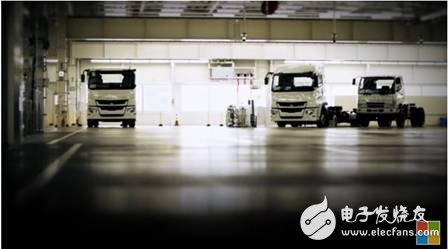Artificial intelligence is not a new concept. It was invisible as early as 1950. In 1956, the term "artificial intelligence" was used for the first time. AI is everywhere, and the artificial intelligence revolution in 2018 will be on the cusp.
If the historical progress of mankind has taught us anything, it is that the real staged progress is not from a single technological breakthrough, but by the various factors of the same period.
For example, in 1760, the industrial revolution that began in the UK was made up of multiple factors such as the emergence of steam power, the increase in iron ore production, and the development and use of first-generation machine tools. Similarly, the PC revolution of the early 1970s was the result of joint development of technology ports such as microprocessors, memory, and software programming.
Now, as we enter 2018, we are also at the forefront of a new revolution. This revolution will change every organization, every industry and every public service in the world.
Yes, this revolution is a revolution that belongs to artificial intelligence. I believe that in 2018, artificial intelligence will begin to become mainstream, affecting our lives ubiquitously and bringing us new and meaningful changes.
Artificial intelligence: In fact, it has been 65 years old.Artificial intelligence is not really a new concept. In fact, as early as 1950, computer pioneer Alan Turing raised a famous question: “Can the machine think?†But it was not until 1956, six years later, that the term “artificial intelligence†was used for the first time. .
Today, after nearly 70 years of hard work and exploration, humans have finally developed AI from a concept to a technical reality that can truly enter everyone's life. At the moment, there are three innovation trends that are actively promoting the accelerated development and application of artificial intelligence:
The first is big data. The explosive growth of the mobile Internet, smart devices and the Internet of Things is generating new data for the world all the time. In today's increasingly digital era, data has become a new "oil" and has become a source of core value and competitive advantage.
Second, it is the ubiquitous cloud computing power. Now, no matter who you are, as long as you have a credit card, you can have the computing power that only multinational companies or governments can have in the past. Cloud computing is gaining popularity around the world and accelerating innovation.
The third element that determines the ability of artificial intelligence is a breakthrough in software algorithms and machine learning. If big data is “new oil,†machine learning is a “new internal combustion engine†that recognizes and applies the rules from complex big data.
Therefore, the accelerated popularization and development of artificial intelligence is not brought about by any single technological breakthrough, but by the above-mentioned industry trends.
AI is everywhereDr. Shen Shum, head of Microsoft's artificial intelligence and Microsoft research division, compared Al's influence on our lives to an "invisible revolution." He believes that artificial intelligence will facilitate people in more and more places, whether it is a personalized search engine service or news reading experience, or provide virtual smart assistants for users' bank accounts or travel plans, and even prevent credit card fraud. . This artificial intelligence revolution will penetrate deeper than any previous technological revolution, but it will not be so destructive.

It is particularly worth noting that AI will be organically integrated into our existing products and services to enhance their capabilities. Give a simple example to illustrate how AI can help me do my daily work more effectively. I often travel to the Asia Pacific region and often need to give presentations to multinational, multilingual audiences. Now, with the AI ​​technology of Microsoft PresentaTIon Translator, I can overcome any language barrier, because when I speak, PowerPoint can display real-time subtitles in more than 60 languages ​​simultaneously.
In the business world, most companies introduce AI into the value chain, whether in research and development, design, logistics, manufacturing, service or customer service. In fact, leading IT industry analyst firm IDC believes that by next year, 40% of global digital transformation initiatives will be given AI capabilities.

In fact, it's not just startups or high-tech companies that have the possibility to embrace AI. As long as you have the vision and determination, you can take advantage of it. For example, the 85-year-old Japanese veteran automaker Mitsubishi Fusosan Bus Co., Ltd. has assembled cloud-based AI capabilities, Internet of Things (IOT), and Mixed Reality Technology (MR) in just two years. , realized "100% digitization operation".

One of their recent achievements in Al is the artificial intelligence chat bot, which allows 10,000 employees to get the information and help they need in a faster, more intuitive and reliable way. This greatly reduces the time employees spend on internal site navigation, information search or consulting colleagues. They also intend to use this chat bot in customer service to improve service quality and efficiency.
2018 Al trend forecastStanding at the beginning of 2018, I listed the following four trends in artificial intelligence that I think will emerge in the next 12 months:
In 2018, artificial intelligence will begin to be applied on a large scale: Like the Japanese automakers mentioned earlier, more and more companies will see the value of AI, so the application of artificial intelligence will start to soar in 2018. According to IDC, global artificial intelligence revenue will exceed $46 billion by 2020. By 2021, AI investment in the Asia Pacific region is expected to reach $6.9 billion, an increase of 73% (source: CAGR).
Ubiquitous virtual assistants: We will increasingly see conversational artificial intelligence robots being used in consumer and commercial scenarios. According to Gartner's prediction, artificial intelligence will become the core technology of customer service. By 2020, more than 85% of customer service will be completed by machines without manual customer service.
Popularizing big data to help business decisions: In a world where data is more important than ever, it's important to be able to extract more meaningful business insights from the data and maximize it to the relevant employees. Artificial intelligence will accomplish this mission by aggregating data from employees and business applications, as well as other global data.
Building the trust foundation of artificial intelligence: In the future, whether at the government level or at the industrial level, people will have more and more discussions on the management and institutional issues that arise in artificial intelligence, just like the rise of e-commerce and the emergence of cloud technology. The same time. An open dialogue between business and government will help us use Al in a fairer, more transparent and credible way to promote economic development and benefit society.
The future of artificial intelligence is bright, and I believe that in 2018, we will lay a solid foundation for the large-scale development of Al and open up a new world.
IJOY Vape,IJOY E-Cigarette,IJOY Disposable Vape,IJOY Vape Kit,IJOY Vape Pod
Tsvape E-cigarette Supplier Wholesale/OEM/ODM , https://www.tsecigarette.com